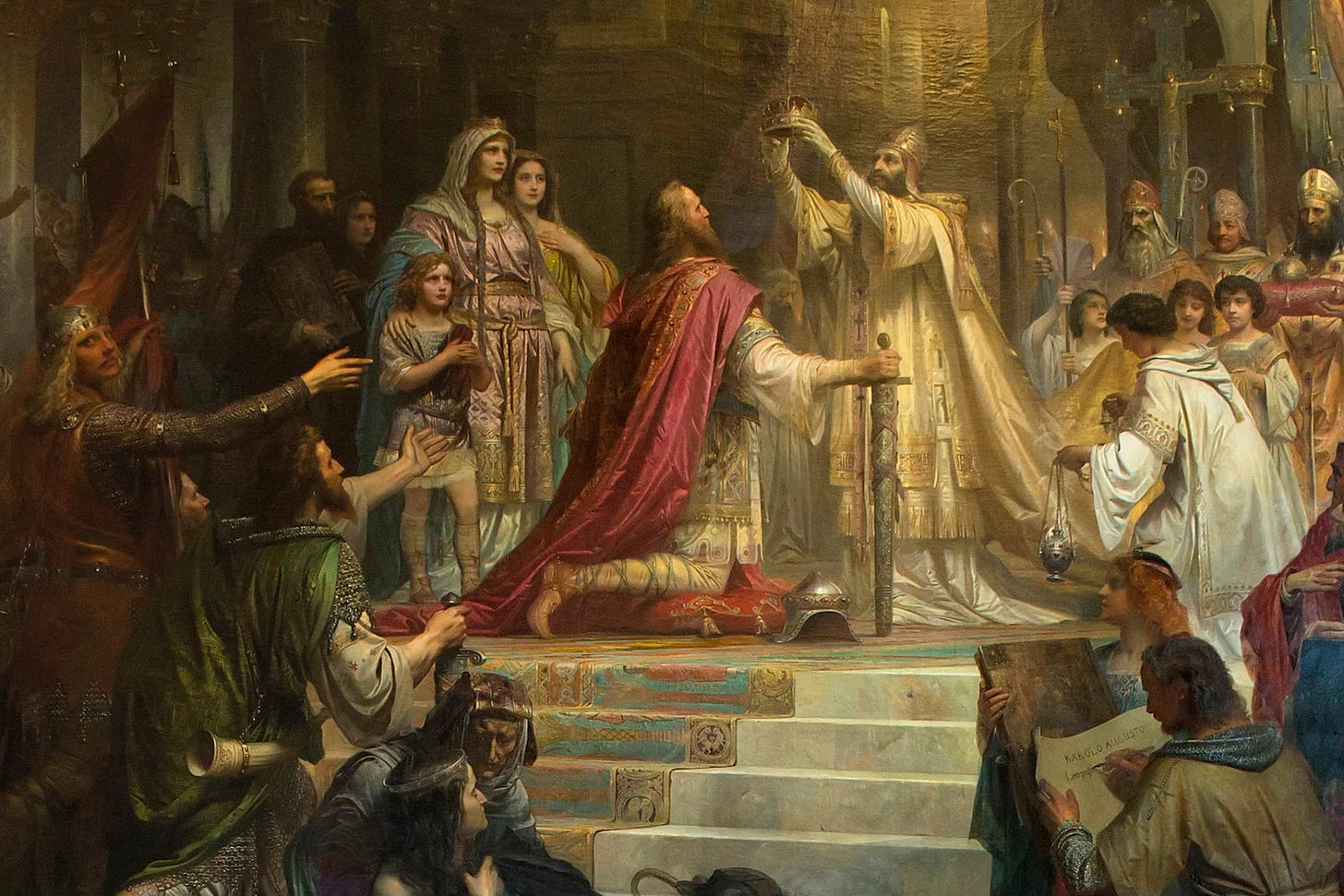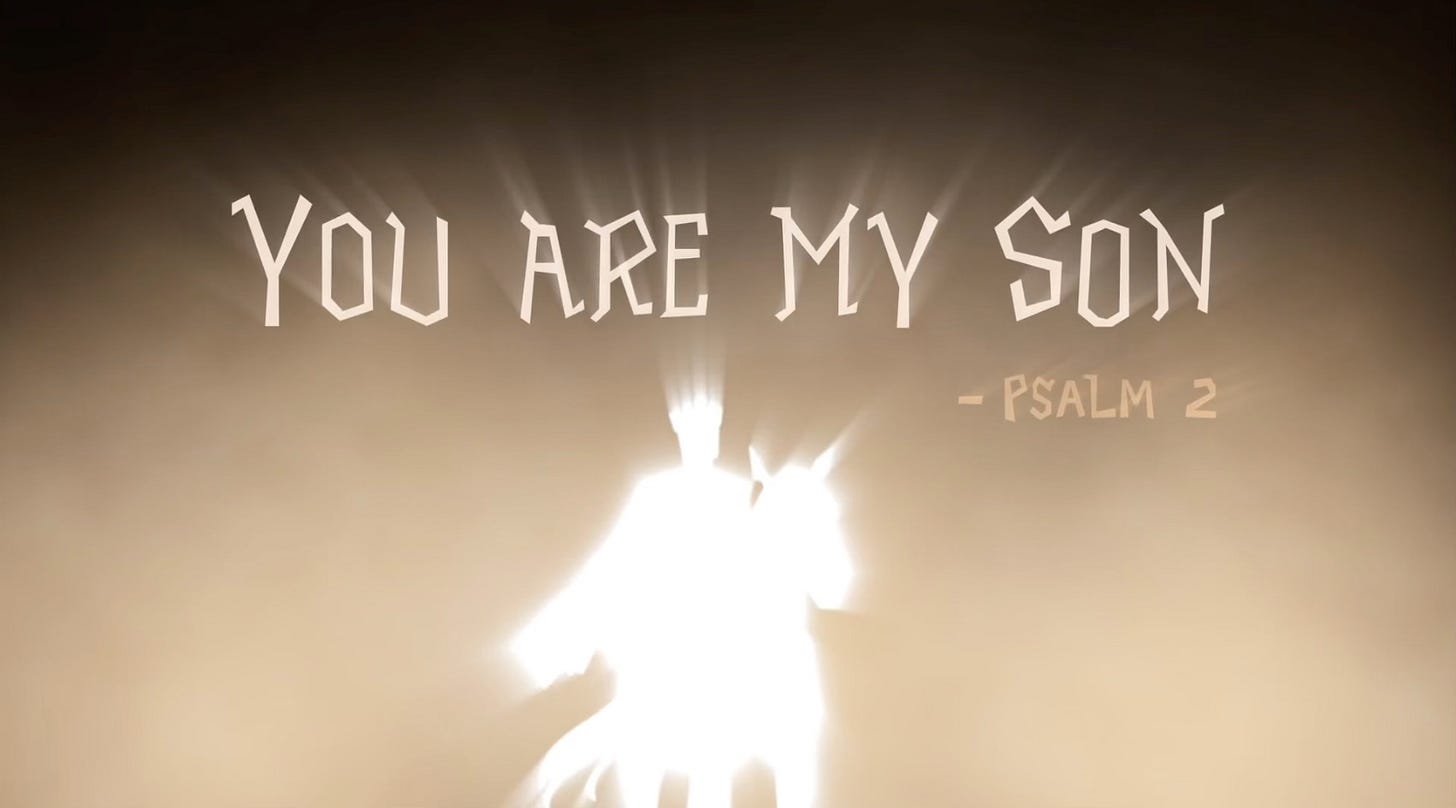In 2022, I graduated with my Masters in Biblical Studies from Liberty University— Rawlings School of Divinity. My final project was a 60-page paper, which I completed over a 5-month span. I asked Dr. George Carraway to be my advisor because he had been a professor for one of my previous courses, and I knew he would hold me to a high standard and not allow me to turn in a weak paper. He was a thoughtful and helpful advisor, and I was able to defend my work and pass with an A.
My research topic was the Baptism of Jesus. Imagine, 60 pages to explain five verses. That sounds like overkill, or at least, that is what my ten-year-old nephew told me.
My thesis, or main argument, was that Christ’s baptism focused on His humanity, not His deity. Before we look at what my thesis means, let us uncover what it is not.
Jesus was not baptized to be an example for us to follow: We are baptized for our sin, but He had no sin, therefore, He was not baptized for the same reasons we are.
The Baptism does not reveal the Trinity: before I had started my research, I had thought that most Trinitarians saw the Baptism as the primary passage to find the Trinity. This is true on a ‘popular’ level, meaning, mainstream preachers and non-academic books (this is not an insult) do make claims linking the Baptism to the revelation of the Trinity. However, it was difficult to find well-researched academics who make direct Trinitarian connections to Christ’s Baptism. Even the second scholar on my thesis committee told me that I did wonderful work showing that ‘the Baptism of Jesus was not about the eternal son.’
So, what can research tell us about the Baptism?
When it comes to the Godhead and confusion over Jesus, it must be understood that Jesus is depicted in two primary ways in the NT.
Passages of Distinction: Jesus portrayed as God manifest in the flesh.
Passages of Identity: Jesus portrayed as God manifest in the flesh.
In other words, some NT passages depict Jesus working and ministering as a man, while other passages identify that Jesus is truly and completely divine. Some things Jesus accomplished as God but other things He had to accomplish in His humanity. For example, when Jesus prayed in the Garden, did He pray as God or as a man? If we allow Scripture to interpret Scripture, then it is clear that Jesus prayed as a man (Heb. 5:7-8). There is no other alternative. If Jesus prayed as God to another, then, according to J. Vernon McGee, He would ‘ungod’ Himself. If there is a difficult passage before us, asking if this is a passage of Distinction or a passage of Identity, if Jesus is being depicted as God or as man, will clear up most confusion. There is no need to be intimidated by Father-Son language in the OT or NT. When Jesus is called the “Son” He is being viewed as a very special man in perfect covenant with God (See O. Cullmann and H. Berkhof for more on this).
We face the same situation with Jesus’ baptism, we must identify if the passage is revealing Jesus as God or as man. Here is the event recorded in Matthew’s account,
Matthew 3
15 And Jesus answering said unto him, Suffer it to be so now: for thus it becometh us to fulfil all righteousness. Then he suffered him.
16 And Jesus, when he was baptized, went up straightway out of the water: and, lo, the heavens were opened unto him, and he saw the Spirit of God descending like a dove, and lighting upon him:
17 And lo a voice from heaven, saying, This is my beloved Son, in whom I am well pleased.
My thesis, mentioned above, was that Christ’s baptism focused on His humanity and not His deity. This assertion can be supported by understanding that two OT texts are the foundation for His baptism. Without the OT we could interpret the Baptism anyway we desire, but Jesus and the NT authors consistently grounded Christ’s work and identity upon the OT (Examples: Mat. 11:5, Lk. 24:27, Acts 2:25, & the whole Book of Hebrews).
The voice from heaven said, “This is my beloved Son, in whom I am well pleased” (Mat. 3:17). “This is my beloved Son,” comes from Psalm 2:7, and is directly connected to God’s King. The second reference, “… in whom I am well pleased,” is from Isaiah 42:1, and centers on the Servant of God.
The King is more commonly called the Messiah or Christ. (Messiah is from Hebrew and Christ is from Greek, both words mean ‘the anointed one.’) The OT informs us that the Messiah would be anointed by God to conquer and reestablish God’s kingdom, which the Messiah would rule for eternity.
The Servant of God, often called the suffering servant, would die on behalf of sinful humanity, and bring redemption to the world. The obedient Servant would make it possible for there to be obedient servants (plural)!
Therefore, Jesus was baptized to be anointed (empowered) to fulfill His ministry as the Servant and the King. He would bring redemption, reestablish God’s kingdom, then rule God’s kingdom (cf. 1 Tim. 2:5, and read Isa. 11 to see what the King will do!).
The King (cf. Isa. 11:2, Ps. 2:2, 7 & 89:20) and the Servant (cf. Isa. 42:1 & 61:1) would be anointed to fulfill their purpose from God. The NT reveals that Jesus, in His humanity, united these roles and fulfilled God’s plan for salvation. Well, when was Jesus anointed? At His baptism: the Spirit came down upon Him, just as Isaiah 11 and 42 said it would.
God does not need anointing power, but a human does. Jesus, in His humanity, needed power from God to complete His commission. I am sure you have felt God inspire and anoint you to minister in preaching, singing, or even praying for someone at an altar. Imagine having that power in a higher capacity and it never leaving you, that may be how to explain the anointing of the man Jesus.
The Baptism and the Spirit’s anointing was a visible way to announce that the King had arrived. However, He had to learn to obey and submit before He could receive a crown. This is the same challenge we face today as Christians: we must pick up our cross and follow Him. We must hear ‘Well done, good and faithful servant’ first, only then will we receive a crown of righteousness later (2 Tim. 4:8).
This article has provided the basic elements of my argumentation and supporting evidence. I will let the more adventurous readers tackle my thesis, which unpacks more issues such as the dove, sonship, ancient kingship, and more. Final thought, when you are discussing or kindly debating the Baptism, you should ask your friend, ‘What OT passages are being referenced at the Baptism?’ That may open up a fruitful discussion, based not on human tradition, but grounded solely on Scripture alone.
My thesis can be found here: https://digitalcommons.liberty.edu/masters/852/
Important blogs to follow…










Excellent, also a great point that Apostolics approach reading Scripture through the lens of Scripture rather than traditions or assumptions. Well said!